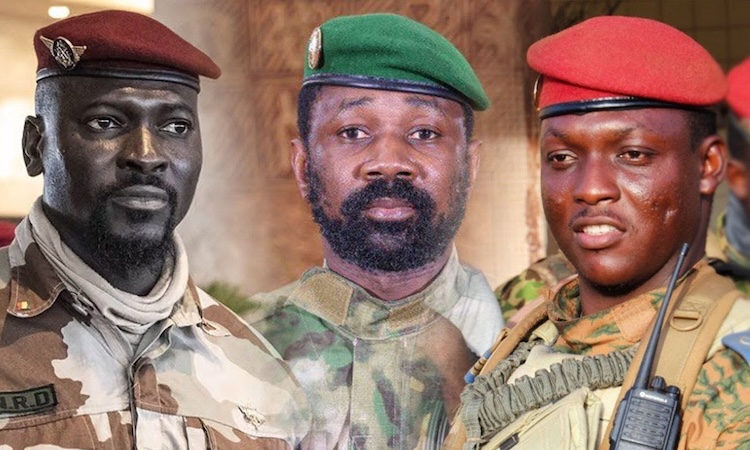At 10.00pm on 3 December 2024, the fascistic puppet regime of Yoon Suk-yeol shocked the south Korean people by declaring emergency martial law on the slimmest of pretexts. Claiming that his clique’s inability to pass its budget was a result of activity by “pro-north” and “anti-statist” forces, he announced the dissolution of parliament, banned all political parties, trade unions, protests and strikes, and called in the army in a bid to stop lawmakers from mounting any opposition to his edict.
News feeds around the world took on a decidedly Monty Pythonesque appearance as subtitle after subtitle followed this headline fact by quoting Yoon’s own words that he was declaring martial law “in order to save south Korean democracy”.
Fascist regime faced down by angry people
Unfortunately for Yoon, the people headed him off. Outraged by the illegality of the move, which south Korean legislation stipulates can only be made in times of “war, incident or other equivalent national emergency”, crowds gathered outside the assembly building. Their swift action delayed the troops whom Yoon had sent to blockade the building.
They bought 20 crucial minutes, during which time enough parliamentarians were able to gather and pass a vote annulling the martial law decree. Thus at 1.00am, a unanimous vote by the 190 (out of a total of 300) parliamentarians who had made it into the building in time, legally overturned the president’s decree.
As Stephen Cho of the Korean International Forum pointed out, this vote was a reflection of the strong will of the people. “If the military fires on the people, we will see the ‘Gwangjuisation of Seoul’ – that is, the heroic armed struggle of the Gwangju people on 18 May 1980 will be repeated in Seoul. Such explosive action on the part of the people would push society towards the eve of revolution.”
The revolutionary People’s Democracy Party (PDP) issued militant statements to assembled protestors as they thronged the streets overnight, and a joint rally of parties and organisations was planned for the morning. The Korean Confederation of Trade Unions (KCTU) announced an immediate and indefinite general strike, and the broad democratic Candlelight Action front also announced a massive rally to call for Yoon’s resignation. Even Yoon’s own senior aids offered to resign en masse.
According to Comrade Cho: “The president illegally declared martial law, moved the army to Seoul without complying with the obligation to notify the national assembly, attempted to block the assembly and ordered the army to enter it by force. This was clearly an act of treason …
“The reason the Yoon government resorted to this extreme measure is simple. The president himself, his wife Kim Keon-hee, and major politicians of the ruling People Power party are facing a major political crisis owing to various illegalities and corruption cases. The president’s impeachment is imminent.”
The wide exposure of corruption and fraud during the last presidential election (referred to in south Korean media as ‘Myeong Tae-kyun gate’) has made the arrest and prosecution of Yoon and his wife Kim all but inevitable. According to Cho, this scandal has revealed corruption that is “ten times, no, even one hundred times more serious than the ‘Choi Soon-sil gate’ of eight years ago, which revealed the crimes of former president Park Geun-hye and led to her impeachment.
“This scandal has caused an outburst of public rage. University professors, intelligentsia, and even Catholic priests have all publicly declared their condemnation. More than 100,000 citizens have been attending rallies every week calling for Yoon’s resignation. The opposition party has proposed the appointment of a permanent special prosecutor and the reintroduction of the ‘Kim Keon-hee Special Prosecution Act’ (previously vetoed by the president to stop investigation into his wife’s activities), which would be a fatal blow to Yoon’s regime.”
Drive to war continues
In the face of all this, the president was forced to retreat from his position. But it should be noted that none of the conditions that led him to declare martial law have ended, either for the president himself or for his imperialist masters. On the one hand, Yoon himself faces prison if he cannot find a way to dissolve parliament. On the other, his US overlords are intent on spreading their war to as many theatres as possible in the desperate hope of thereby overextending and wearing down their opponents and reversing their own economic and political decline.
Comrades in south Korea are convinced that the present retreat is therefore only a temporary one, and that pretexts will continue to be sought for imposing martial law, including through provoking north Korea (DPRK) into an all-out war.
According to Cho: “The fact that Yoon’s faction has been scheming for a way to enact a ‘wartime martial law’ regime has been widely known since the summer. It has even been debated in the Republic of Korea’s national assembly.
“Yoon’s declaration of martial law confirmed that the unprecedented provocation (against the DPRK) in October – flying drones over north Korean capital Pyongyang to scatter leaflets – was by no means a coincidence. Since war did not break out at that time (owing to the north’s ‘strategic patience’), no justification could be found for declaring ‘wartime martial law’ …
“In the history of the so-called ‘Republic of Korea’ (ROK), which is a complete colony of the USA, all military coups – including Park Chung-hee’s on 16 May 1961 and Chun Doo-hwan’s on 17 May 1980 – were, without exception, orchestrated by the USA. The evidence is beyond dispute.
“Considering the historical precedents and the master-servant relationship between the US and ROK militaries, there is no reason to doubt that this declaration of emergency martial law and attempted military coup was ultimately orchestrated by the United States. As always, we can expect concrete evidence to emerge before long.”
Explaining the significance of the drive to war in east Asia, Cho pointed out that “The storm of World War Three, unleashed by the imperialist forces, is sweeping from eastern Europe through west Asia (the middle east) to east Asia … The imposition of martial law in the ROK serves as the fuse for this explosive scenario of war on the Korean peninsula.
“The DPRK declared on 15 January 2024 that it has the ability to subjugate the ROK. From the DPRK’s perspective, the declaration of martial law in the ROK is essentially equivalent to a declaration of war against the DPRK. After the ROK’s drone provocations in October, the DPRK reaffirmed its stance on the situation through official statements, emphasising that while ‘the time is not set by us’, nevertheless, ‘the countdown to war has begun’.
“Given recent developments, such as the lifting of restrictions on the use of long-range missiles supplied to Ukraine by the USA and Britain, which have further heightened military tensions over world war, it is reasonable to conclude that imperialist forces are actively provoking a war on the Korean peninsula.
“The people of the ROK have a proud history of protests that brought down the fascist dictatorship and defended democracy through the April uprising in 1960, the Gwangju uprising in May 1980, and the June uprising in 1987. The declaration of emergency martial law by Yoon is an anachronistic and fascistic measure; the people of the ROK will never tolerate it …
“The timetable for the president’s impeachment has been accelerated by his declaration of emergency martial law and the subsequent parliamentary resolution to lift it. The anger of the people will also be stirred up through massive rallies and protests. The militant workers and people, including the People’s Democracy party (PDP), will be at the forefront of the struggle to overthrow the Yoon fascist group …
“With each fascistic and frantic last-ditch effort the Yoon regime makes, the people of the ROK become more radicalised and the timetable for revolution in the ROK is accelerated. This will not only lead to the downfall of Yoon and the ruling People Power party but also to the downfall of all pro-US forces.
“At the centre of the revolutionary process of the transformation from the antifascist democratic front for Yoon’s resignation into the national-democratic front for the withdrawal of US troops and the wider political struggle, the People’s Democracy party stands ready – the only force for revolution in the ROK, and the only genuinely anti-US, anti-imperialist party.”
















